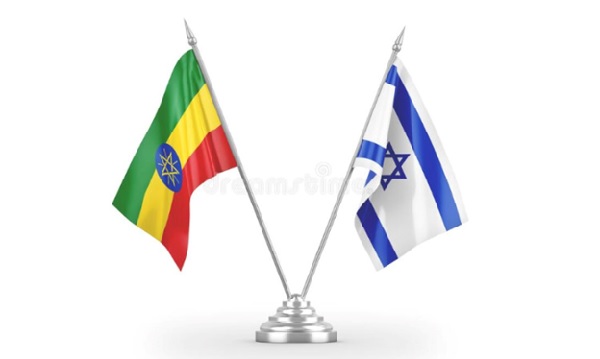
BY DANIEL ALEMAYEHU
Ethiopia and Israel are one of the oldest nations in the world; and the history of the two countries dates back to the ancient eras. It is common knowledge that the two ancient countries have a long deep-rooted history mentioned recurrently in the Holy Book, which testified this reality.
As documents indicate, the relations between Ethiopia and Israel were first established six decades ago. Since those times, leaders of the two nations have been working to further strengthen their ties in all areas targeting to meet the aspirations of the peoples of the two countries.
As part this objective, recently, the Embassy of Israel in Ethiopia has organized an experience sharing training for Ethiopian medical practitioners. A delegation of Israel medical team led by Dr. Barak Levit has shared their knowledge and skills to their Ethiopian counterparts focusing on trauma and emergency care.
The training, organized in collaboration with the Ethiopian Health Ministry and St. Paul’s Hospital Millennium Medical College, was held from December 27- 30, 2022. In the training, Ethiopian healthcare practitioners drawn from the capital Addis Ababa, have participated and shared their experiences.
Approached by the Ethiopian Press Agency (EPA), Certified General Surgeon, Trauma Surgeon and Trauma Unit Manager in Israel, Dr. Barak Levit mentioned some points regarding the objectives of their visit. As to him, the training aims at building partnership between health professionals of the two countries and to creating an opportunity to share professional experiences.
According to Dr. Barak, the Israeli medical delegation is the collection of volunteer doctors and nurses. They travel around the world with the purpose of serving humanity. Accordingly, the team chose Ethiopia because Israel and Ethiopia have very good partnership; he added underlining the long- rooted history of the two nations.
While talking about the existing reality in Ethiopia regarding trauma and the emergency care system, Dr. Barak said: “All of us are really impressed by what we have seen here. The doctors and nurses are well trained. The skills and the level of knowledge here is not less than any other part of the world. We also learn from each other.”
The training was offered focusing on topics related to trauma and the emergency care system. To this end, the major talking points were trauma, surgery trauma, and critical care for injured patients. “Most of the sessions are practical in relation to surgical and emergency procedures with the help of trauma simulation system.”
Mentioning that they are from a place where there is frequent war, terrorism, and bombardment; he said that they have a lot to share. As to him, the team of physicians had been on trips to different parts of the world and witnessed that there is a gap in trauma centers.
Dr. Barak also affirmed his team members’ readiness to support the nation in any means if the nation calls for help. What makes the delegation team’s stay in Ethiopia different from the other places, as to the team leader; is the team suggested on alternative system and how we can use some other equipment when there is shortage.
Besides, the trainees and the team of doctors have discussed how to divide resources. Trauma care system can save more lives during a war, Dr. Barak added. “In the future, we have so many projects that we can do together including disaster management, trauma system building, and constructing a new trauma center here,” he remarked.
By the same token, St. Paul’s Millennium Medical College General Medical Doctor, and professional Development, Project and Business Development Program Officer with the Hospital center, Dr. Rebeka Mesfin said: “The most important lesson we draw from the seminar is how to perform our jobs with alternative ways and help our patients. All of us have learnt and shared experiences with the team.”
Members of the delegation team have plenty of experiences regarding trauma and emergency care. The mechanisms used by the trainers and the ways they elaborate the ideas are eye-opening. The training was delivered practically. She added,
“We observe the idea in a wider perspective and learn how to counteract sudden happenings. In our part, there is a shortage of facilities; so the team promised to support our center in the future. They have generously provided some of the equipment they brought,” Rebeka further remarked.
The Ethiopian Herald January 10/2023





